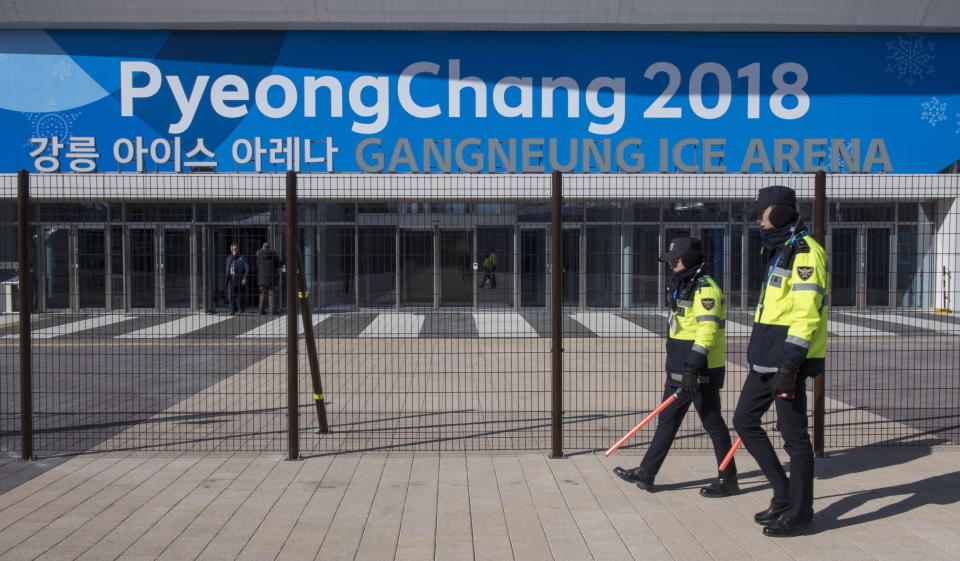U.S. sends almost as many security guards as athletes to Winter Olympics

The United States is sending the largest delegation in Winter Olympics history (242) to compete in the 2018 PyeongChang Games. Having that many athletes situated a scant 50 miles from the Demilitarized Zone (DMZ) that separates North Korea and South Korea demands an (almost) equally large security force for Team USA.
According to Wired’s Eric Adams, the U.S. will send 200 “security personnel” from the Diplomatic Security Service (DSS) to look after its athletes. That’s a drop in the bucket for the DSS, which has “2,000 agents and 45,000 personnel stationed in more than 170 countries” to look after everything from the FIFA World Cup to the United Nations General Assembly.
About half of those agents will be on the ground, with approximately 20 apiece assigned to each of the main competition clusters in PyeongChang and Gangneung. Dozens more will be stationed out of a joint operations center in the capital city of Seoul. The DSS, which has worked every Olympics in which the U.S. has participated since the 1976 Summer Games in Montreal, has spent the last two-plus years planning for PyeongChang in conjunction with South Korean authorities.
“There will be agents assigned to each venue, monitoring specific teams competing or practicing at those locations,” says Craig Reistad, the DSS’s Olympic security coordinator. “Their role is to be on the ground to serve as eyes and ears at the venues. If there are any anomalies — anything out of the ordinary — they’ll know how to get the team out of danger and where to move them.”
Not all the agents will be involved in high-octane security procedures. Some will simply have to direct traffic, be it for VIPs or in reaction to accidents on the road. And none of those aforementioned numbers include the Secret Service agents who will be watching over Vice President Mike Pence and Second Lady Karen Pence in South Korea.
The DSS, though, will not be guarding America’s athletes personally. That role remains within the purview of South Korea, whose own security detail — from approximately 13,000 police officers to its high-tech protection methods (i.e. drone signal jamming, smart police cars, etc.) — is responsible for protecting all of the 2,925 participants from a record 92 different countries, per ABC News’ Hakyung Kate Lee.
And despite how massive the DSS’ contingency may seem, the U.S. Department of State insists that “there are no more extraordinary actions being taken in this particular Olympics than there would be in any Olympic Games.”
In the event of a legitimate international crisis — like, say, military tensions resulting from another Twitter war between U.S. President Donald Trump and North Korean supreme leader Kim Jong-un — America has more than enough might to take military action. U.S. Forces Korea, which has been stationed in the South since the end of the Korean War in 1957, boasts more than 30,000 troops at the ready.
All of which is to say, those 60,000 or so American spectators attending this year’s games or the 242 competing in red, white and blue could have as much reason to worry about braving the bitter-cold weather as staying safe in the shadow of a potential nuclear winter.

